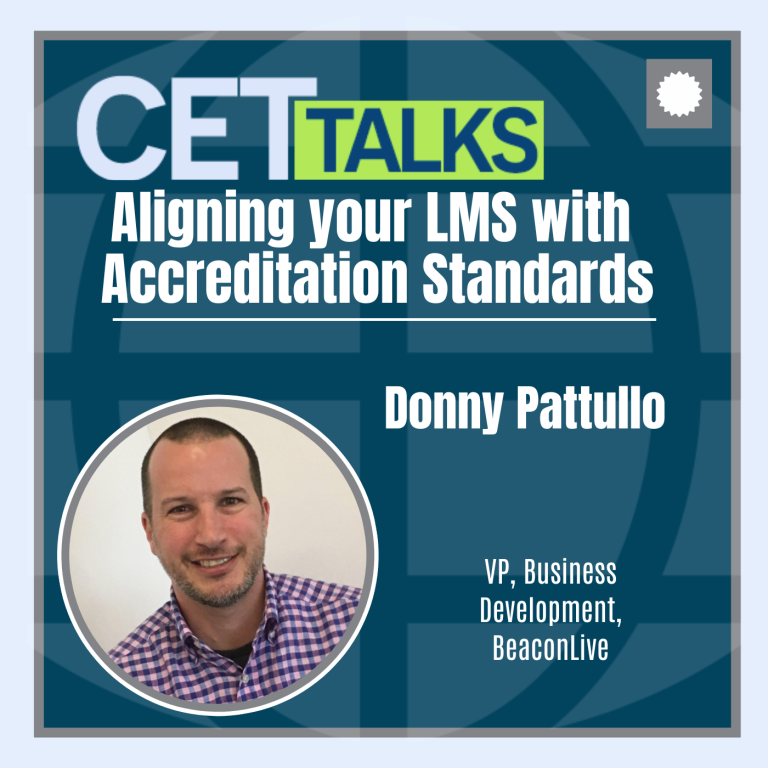.
CET Talks: Accreditation, Learning and Leadership
Episode 01
JUNE 6 2023 . 23 MINUTES
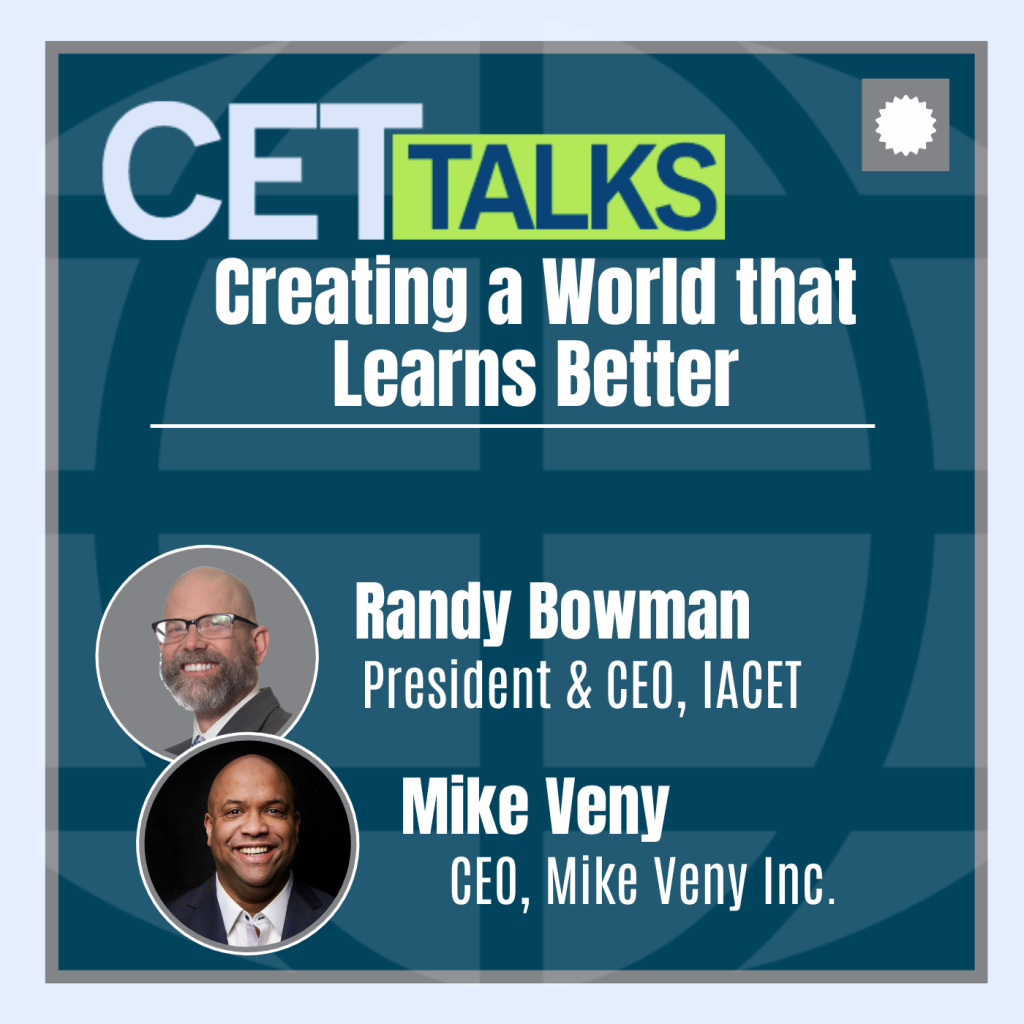
Creating a World that Learns Better: Welcome to CET Talks
Welcome to the first episode of CET Talks! Join Randy Bowman, Interim President and CEO of IACET, and co-host and certified corporate wellness specialist Mike Veny, as they discuss their career journeys and the vision for the podcast. Mike reveals what he is learning from IACET and how it has changed how he develops courses. He also discusses why he made the decision to choose IACET and shares advice for others who are in the process of choosing an accreditor. Make sure to tune in to future episodes, as we continue to explore what it means to create a world that learns better.
Listen to the Podcast
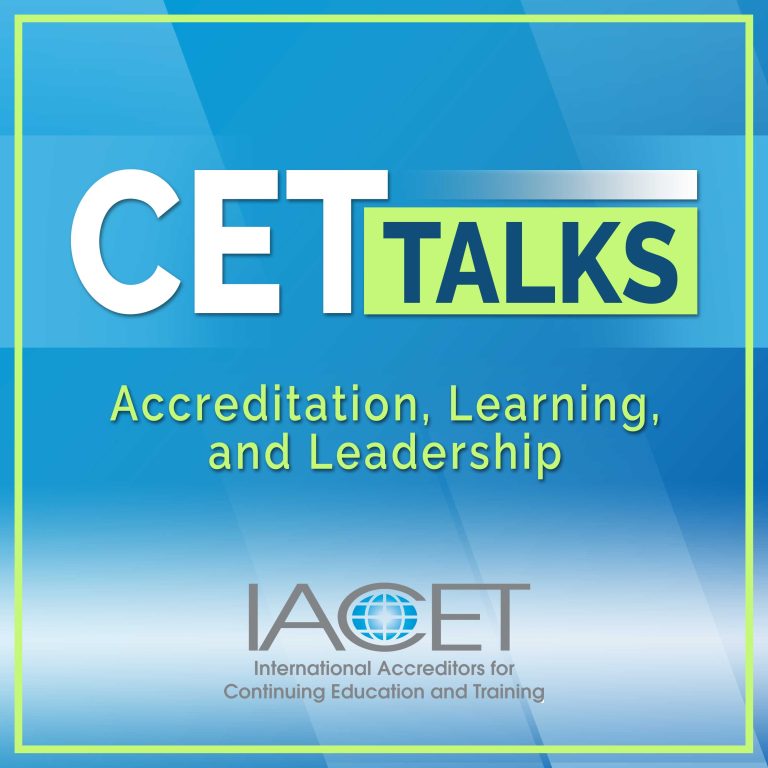
Welcome to CET Talks, the International Accreditors for Continuing Education and Training’s podcast, where we convene thought leaders in the continuing education and training ecosystem to share ideas, research, best practices, and experiences that promote the creation of a world that learns better. Your hosts are Randy Bowman, Interim President and CEO of IACET, and certified corporate wellness specialist Mike Veny.
Welcome to the first episode of CET Talks! Join Randy Bowman, Interim President and CEO of IACET, and co-host and certified corporate wellness specialist Mike Veny, as they discuss their career journeys and the vision for the podcast. Mike reveals what he is learning from IACET and how it has changed how he develops courses. He also discusses why he made the decision to choose IACET and shares advice for others who are in the process of choosing an accreditor. Make sure to tune in to future episodes, as we continue to explore what it means to create a world that learns better.

Transcription
Host: Welcome to CET talks, the International Accreditors for Continuing Education and Training’s podcast, where we convene thought leaders in the continuing education and training ecosystem to share ideas, research, best practices, and experiences that promote the creation of a world that learns better. Enjoy the episode.
Randy Bowman: Hi, welcome to CET Talks. My name is Randy Bowman, and I’m your IACET Staff Host. In today’s episode, I want to introduce you to our co-host, Mike Veny. I’ll let you guys get to know him and our vision for this podcast. So, Mike, welcome. Thanks so much for joining us.
Mike Veny: Well, thank you, Randy. And hello to everyone out there listening.
Randy Bowman: So, Mike, you’re an accredited provider. Can you tell us a little bit about your story? Tell our listeners who you are and how you’ve come to be associated here with IACET.
Mike Veny: Well, first of all, I never thought I’d be sitting here recording this and talking to you about this because it was a heck of a process. I have been a motivational speaker since 2011 and doing trainings around mental health in the workplace. And the apocalypse happened in 2020. Everything shut down, and I needed to figure out what I was going to do. So I started doing virtual presentations, but I also started thinking about creating a continuing education company. I already had the bones for it and my programs were already giving CEUs in certain places. I said, let’s figure out how to do this. Now, this is not my world at all. I’m a musician, as we were talking about before. I’m a drummer, you gave this to a drummer to do! I looked up different organizations to accredit my company, and I kept coming up to IACET. I saw the price of the application and I went, oh heck no, I don’t think I can do this. I saw what was involved and it’s like, this is far beyond me. But one thing that I appreciated about IACET is, compared to the other accrediting bodies that were out there, and I’m not knocking any of them, but IACET seemed to have the most power and influence. I had a conversation with myself and said, okay, we’re going to do this. I went on the path to become an accredited provider, not me personally, but my company and its programs.
Randy Bowman: Sure. Yeah. That is great. So, what would you say was the number one thing you learned as you went through this accreditation journey?
Mike Veny: There used to be this sign that was in my office for many years, “Measurement eliminates argument.” I forgot who said the quote, but it says you can manage what you can measure. If you want to do better with your finances, you know what you need to measure. If you want to lose weight, you know what you need to start measuring. But when it came to the world of education, I realized it was the wild, wild west. Whenever I went to look for training online, it was like everybody has the best training out there, so the cool thing for me was learning that I need to continue to measure things even beyond IACET. What’s been interesting is even though we’ve gotten accredited, I’m actually measuring more things than we even talked about in the accreditation, just because of what I learned.
Randy Bowman: Wow. Yeah. That’s one of those great life principles that does transcend all aspects of your life. I’ve heard you share that before. I always love hearing that story. How did you get on the path of becoming a speaker at all? What led you down this road of wanting to teach or encourage people? What is it that you like to do, I guess might be the best way to ask that.
Mike Veny: I love helping people. As I said before, I’m a drummer, Randy, so I want to be playing drums. But I’ve been struggling with mental health challenges for my entire life. Some people might say mental illness, and sometimes I’ve said that too, because there’s a difference, actually. Mental illness is when you have a debilitating condition that affects your life. Mental health challenges, well, we all have those. Mine are somewhere in-between. I’m going to say it’s more mental health challenges, because I’ve gotten the mental illness under control. I’ve battled with depression my entire life, anxiety and obsessive-compulsive disorder. It has made things so difficult for me, difficult relationships, just everything. It wasn’t until I had a mental health breakdown in 2011 that I reached out to someone I knew who worked in mental health. I didn’t even remember what she did. I just said, “I need help.” She did not respond the way I wanted her to. She was supposed to give me a therapist’s name or something. Instead, she said, “I’d like to hire you to be a speaker at my mental health event.” I thought, “No, you’re not listening to me.” I got angry, but I said, “You know what? Whatever. I’ll speak at the event.” I shared my story and in about 20 minutes, I had a standing ovation. People were coming up to me saying, “Can we hire you to speak and train our people?” And I thought, “What the heck is going on right now?” I had to have a real talk with myself and realize that despite the fact that I’ve been through these challenges, and still go through them, there were things that I’ve learned on my own and from other people that I could share that are simple and practical. A lot of the mental health training that’s out there, they call it psychobabble, where every training is talking to you like you’re a therapist. I believe in speaking at a fifth-grade level to anyone. That’s my philosophy for writing books and training. So I decided to become a speaker. I didn’t really want to, because I think motivational speakers are weird, but I said, okay, and I still do it. That led me slowly down the path to training. Eventually, I ended up in the corporate wellness space doing things. Going back to the IACET accreditation, I realized I was already doing a lot of the things naturally, right? A needs analysis, gathering data, bringing in subject matter experts, and stuff like that.
Randy Bowman: I think that’s a journey that many of our accredited providers and many, what I would call subject matter experts, walk down. They’re passionate about their subject and they want to share it. And then they fall into this, “Hey, now I’m training. What do I do now?” Right?
Mike Veny: Yes. We kind of just stumble into it. Yes.
Randy Bowman: So for people like that, where they think, “Hey, you know, I’m just an expert in this field. I enjoy doing it. Now I’m doing all these teachings and trainings, but how do I know if I’m doing it right? How do I know if I’m meeting my goals?” What advice do you give those people?
Mike Veny: Wow, that’s a really good question, Randy. These episodes are going to be great with you. Okay. I think it’s important to keep learning and talking about a world where people learn better. There’s no right way to do it. You have to keep learning and to be very transparent with yourself and those listening. It’s one of the reasons I reached out to IACET’s former CEO, Casandra Blassingame, about being on the podcast. And thanks to her, I’m here today with you. One of the reasons that I did that is because I wanted to learn more. I figured being a host of a podcast like this, I’m going to get to learn from so many guests. I am a person who’s right there in it, trying to get better at it, learn more about what’s going on, like best practices and standards. It’s such a big world, this training and continuing education thing, but I encourage you to embrace it as a learner. That’s really the key to being successful in it, in my opinion.
Randy Bowman: I was just thinking one of the things you said a little earlier was, “I didn’t get accredited, my company got accredited.” Can you talk a little bit about how accreditation impacted your entire team?
Mike Veny: Absolutely. Well, first of all, I had to learn what an instructional designer is. I didn’t even know that one of the things they did for the whole company was raise our standards for doing things. They raised our standards for things like what we put out on YouTube. You don’t need any standards for that. They gave us a new way of looking at things and thinking about the learner as the end user of all of our things. This really impacted my team in everything we did. It’s still impacting all of us. We have a very small team; it’s about six of us, and we all have different roles on the team. I also had to realize that IACET’s not accrediting me personally. I’m just a person achieving accreditation for the entire organization. That also gave me a new thing that I talk about in therapy. You’re going to love this. I used to think of myself and my company as one, right? Like, right, Mike V. Inc.
Randy Bowman: Ah.
Mike Veny: The accreditation has my name on it, but it’s for the company I work for. That was a big change for me, but really the thing that accreditation has done is gotten everyone into checklists, making sure we use spreadsheets to put in numbers, making sure people fill out their evaluations. It also got me to look at evaluations differently. That was a scary thing for me, because when you are the business, you take everything personally. I would see something that was, I don’t want to say negative, I’ll say constructive criticism, in an evaluation, and it would just make me spiral. I’d be in a bad mood all day. It’s like, ugh. Nowadays, if I get constructive criticism or someone just bashes my presentation in an evaluation, this is an opportunity to learn. What can we learn from this? It’s given me gold, that process in and of itself right there.
Randy Bowman: Okay. You know that is one of the key components of accreditation, this entire continuum of self-improvement through evaluation. It takes a strong mind to be able to handle that.
Mike Veny: Yes, it does.
Randy Bowman: So what do you think the benefits are to learners? The difference between getting learning from an accredited provider or a non-accredited provider?
Mike Veny: Well, at the end of the day, you have to trust what you spend your money on or sign up for, right? The good thing and the challenge with the internet, as we know it, is anybody can say anything or be anything they want to be. My friend Joe can say, “I’m a training company, and I’m going to make courses, too,” and Joe’s material might be great and all that. The thing about having the accreditation is that the provider that you’re looking at has been vetted. They have been vetted for their ethics, their systems, and processes. You are working with someone who, I’m not saying it’s going to be the best material in the world, but they understand more thoroughly what they need to do to help you and will more than likely help you succeed. That’s why focusing on accredited providers is very important. To be honest with you, nowadays I get all these recommendations from friends, “Oh, you need to take this course, Mike, you’d love this course.” Oh my gosh, I am a stickler now, looking at the learning objectives and looking at the descriptions. This is what you’ve done to me IACET!
Randy Bowman: Oh, I understand! Recently, we had to find a school for my daughter; she’s going into phlebotomy, and we were doing the same thing. I’m checking every school’s accreditation and she’s like, “Dad, what are you doing? Nobody cares about this.” And I’m like, “No, it’s important.” Right?
Mike Veny: It is, it is. And, going back to what I said before about measurement eliminates that argument. You want the provider you work with to have been measured as being legit.
Randy Bowman: At the end of the day, the value for the learner is they got a good quality education that was vetted by a third party. Well, Mike, you know we’ve been talking about doing this podcast for a little bit now, and here we are. We’ve been trying to get this vision for it, for what we do, what it is that we want to accomplish here. Can you tell me, from your perspective as an accredited provider who’s coming up alongside us, what do you want to see from these episodes?
Mike Veny: You ask great questions, by the way. This is really going to be fun. I hope I do the same. When we are both hosting together, what do I want to see? I want to see a high-quality podcast that has information that’s so good that people would be willing to pay for it. That’s what I want to see. Information around continuing education from all different aspects, because it’s easy to get focused on just the stuff that we’re doing with IACET accreditation and credentialing and all that stuff. But there are also opportunities to talk with other accredited providers and learn from them about their journey. I’d like to see all that and have a podcast where you, as the listener, feel like this is so good that you would pay for it, if it wasn’t available for free.
Randy Bowman: I love that vision. High quality is one of my key values. I hope we can achieve that, as well. One of the things I’ve said over and over again is that I really want this to be a place where we can convene thought leaders, those people that are thinking on the edge in the education and training ecosystem. Bring them in and have them share their ideas, share their research, share their best practices, and at the end of the day, create this world that learns better. So, Mike, what does a world that learns better look like to you?
Mike Veny: Wow. What does a world that learns better look like? I was thinking about this, and let me just say before I answer this question, that as we’re recording this, we’re in a very unique time where the world of training and continuing education is getting more attention than ever before. I don’t know if you know this, but there are many teachers who are leaving K to 12 education and universities and colleges and becoming instructional designers. This is a whole new world that a lot of people are really getting into. It’s really, really cool to see that, actually. Deepak Chopra has this quote that I think about all the time, “Organizing power is inherent in knowledge.” I don’t know if you’ve ever done this, but sometimes I’ll take a quote, sit with it, and just let it marinate. What does that mean to me? What this reminds me of is that when we learn and are intentional about learning, we make better decisions. That’s the organizing right there. We live in a world where things are changing all the time in different ways. It’s really important for people to learn. I hope that people learning better is my vision for the world, that they start to embrace being intentional about learning and realize that we’re like rubber bands. You know, a rubber band works when it’s stretched, and that’s what we all need all the time in order to grow as a society.
Randy Bowman: Wow. Thank you, Mike. Thank you for sharing that with us. What questions do you have for me, or what thoughts do you have about the podcast?
Mike Veny: So I wanted to ask you, well, I didn’t know I was going to ask you questions, but I’ll ask you a question right now. What’s your vision? What are you looking forward to most in terms of the upcoming episodes? Because I know we have a lot of different things on the list here. Which one are you looking forward to?
Randy Bowman: Oh, I don’t know. There are so many good ones. I’m looking forward to learning a lot more about micro-credentialing and initiatives that are going on in digital badging. I’ve been thinking about digital badging for about five years on and off. I really think it has the power to transform society in a unique way. Finding work that we have the skills to do can be tough under our current model. These ideas of submitting resumes to big corporate systems that read resumes through AI, it always seems to lack what really makes up a person. When you’re hiring somebody, you’re hiring a person, not a piece of paper. I’m thinking of the future with getting digital badges, not only for skills but for personality traits that you have, philosophies and worldviews that you have. All of that comes in play to make a person. If all of that’s in digital badges, and I’m looking for someone who fits this kind of mold, I don’t need a piece of paper. I want to look at their wall, their digital wallet and see if this person has the right skills I need and will fit in this role. None of this trying to promote ourselves above one another, but just show “This is who I am, and this is what I have.” I’m really looking forward to some of the digital badging talk and how it can transform the hiring process. Not just transform it completely but rewrite the job-seeking and hiring process. I know we have competency-based learning on the docket down a ways. You know, so often classical education is all about time and seats. We send you to kindergarten, sitting you in a seat for eight hours all through high school, and we’re clocking those hours. Right. But we all know, we all learn at different rates. Some things I skip, some things I get right away. Some things I have to mull over for a while. You could be just the opposite in those same subjects, where you get it right away. You ask me to beat a drum, it’s going to take me a long, long time to get the beat down. I start counting too fast in my head, but it’s almost natural to you, right?
Mike Veny: It comes very natural. You know, you bring up something that’s very interesting. I was just thinking, one of my top strengths, according to Strengthsfinder, is Competitive. I’m competing in the sense that I actually compete with myself. I want this podcast to be the best that it can be, so I’m putting it out there. That’s my strength. What you’re saying is that at some point someone might be able to see that in some kind of digital system that “His top thing is competitive. This is what we need, he’s mastered this, and he’s even taken some additional training in it. Right. Let’s bring him in.” I love that.
Randy Bowman: Yeah. We have some great episodes coming up on how to collect and look at data. I do believe we have one on determining ROI of your learning program. That’s something lots of instructional designers and program managers struggle with, especially in a corporate world where you’re the internal training department of a corporation and they’re asking, “What’s the ROI for having for us paying you since you don’t generate any revenue?” Those are great questions, and we have experts lined up to help answer those types of things.
Mike Veny: We’re going to have a lot of fun here. Something I’m looking forward to is the artificial intelligence conversation that’s been happening. I think it’s going to be creeping into a lot of our stuff. Also, the diversity, equity, and inclusion conversation that seems to be floating around every subject of the world. I’m curious how this is going to pan out with the different guests and topics that we’re doing. And I do know, I don’t want to name a name, but I saw on the list there’s an IACET-accredited provider that we’re going to be interviewing. I’m excited for that.
Randy Bowman: Great. Well, you know, I’m just glad to be here. Glad we’re getting this started off today and looking forward to the future. Mike, thank you so much for joining us. I want to thank all of you for joining Mike and I and listening today. We certainly hope that you’ll subscribe to this podcast on your favorite podcast platform. And if you’ll do us one other thing, come find IACET on LinkedIn and tell us what you think a world that learns better looks like to you. Looking forward to hearing from you. Thanks for joining us today.
Randy Bowman: You’ve been listening to CET talks, the official podcast of IACET. Don’t forget to subscribe to the podcast on Spotify, Apple podcast, or wherever you listen to podcast. To learn more about IACET visit IACET.org. That’s I-A-C-E-T.org. Thanks for listening, and we’ll be back soon with a new episode.
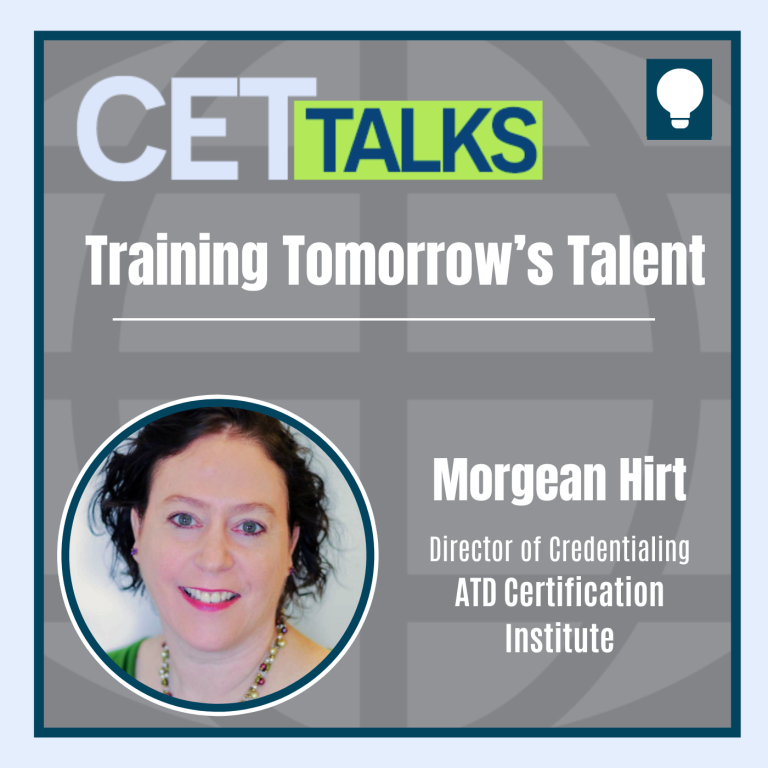
Episode 31: Training Tomorrow’s Talent: Exploring Certification, Standards, and Impact with ATD’s Certification Institute
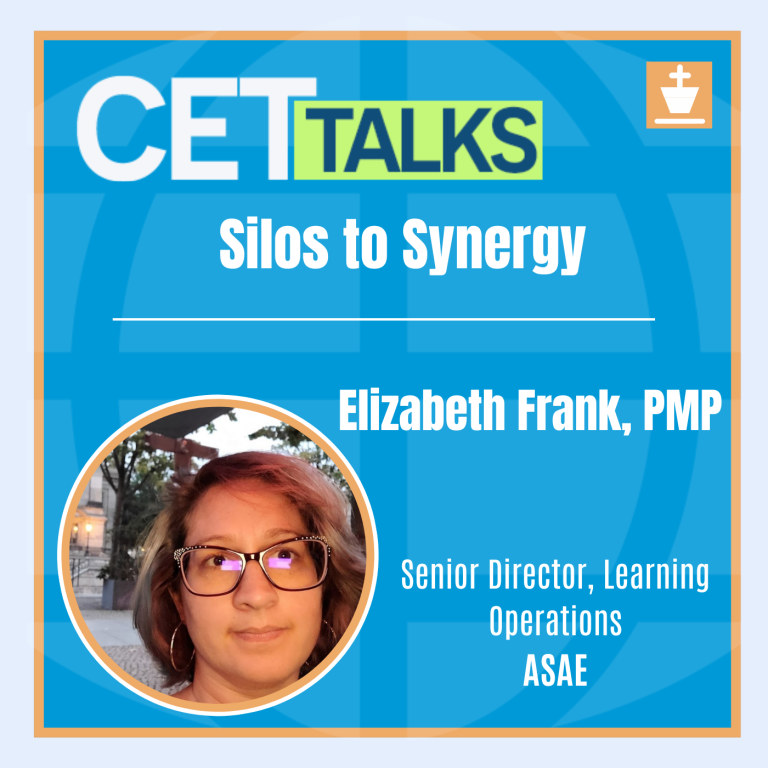
Episode 30: Silos to Synergy: Holistic Approaches to Creating Collaborative Learning

Episode 29: Credentials in Crisis: Challenges and Opportunities in Modern Education Recognition
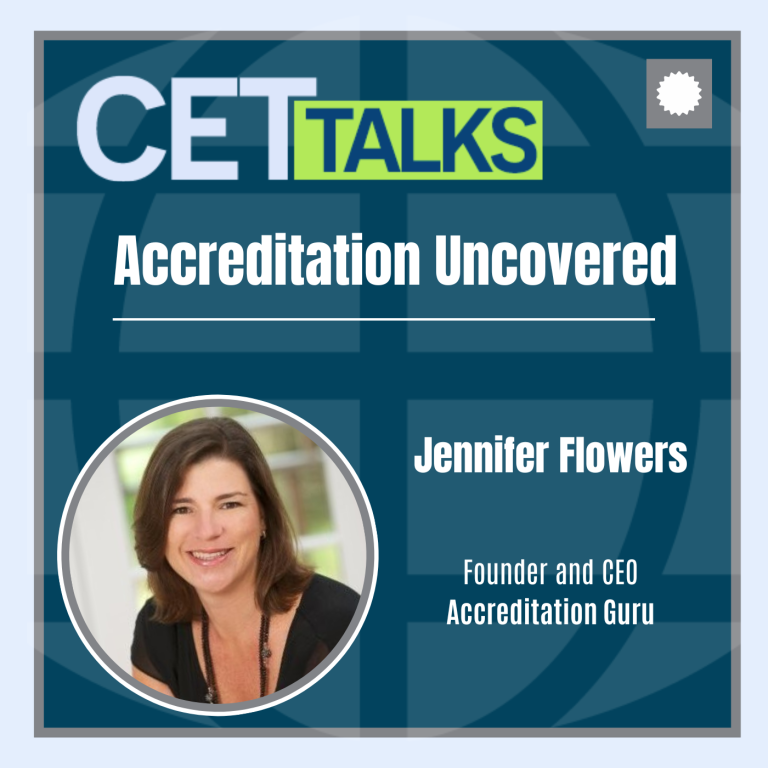
Episode 28: Accreditation Uncovered: Essential Insights from an Industry Leader
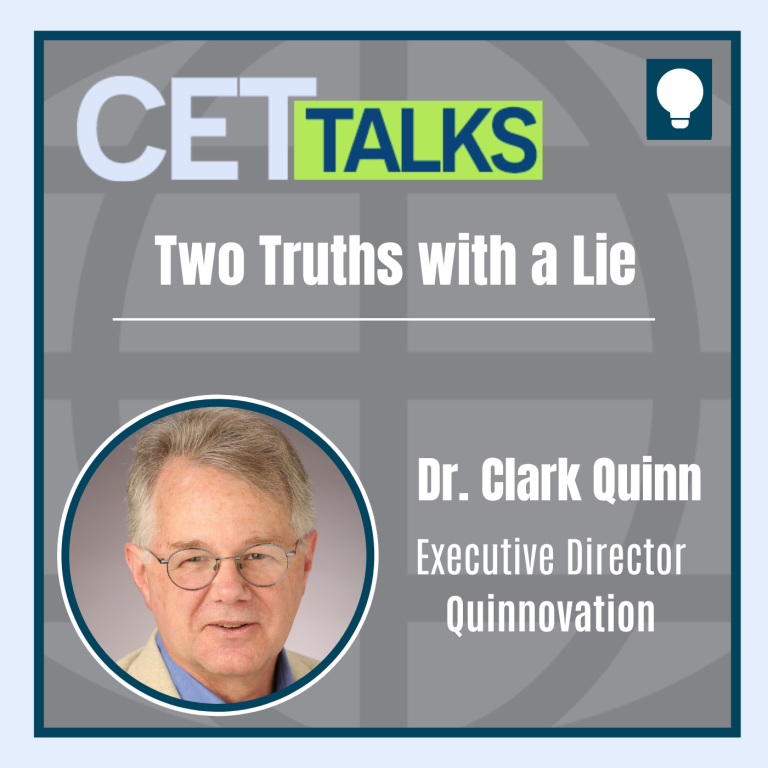
Episode 27: Two Truths with a Lie: Managing the Myths of Modern-Day Learning
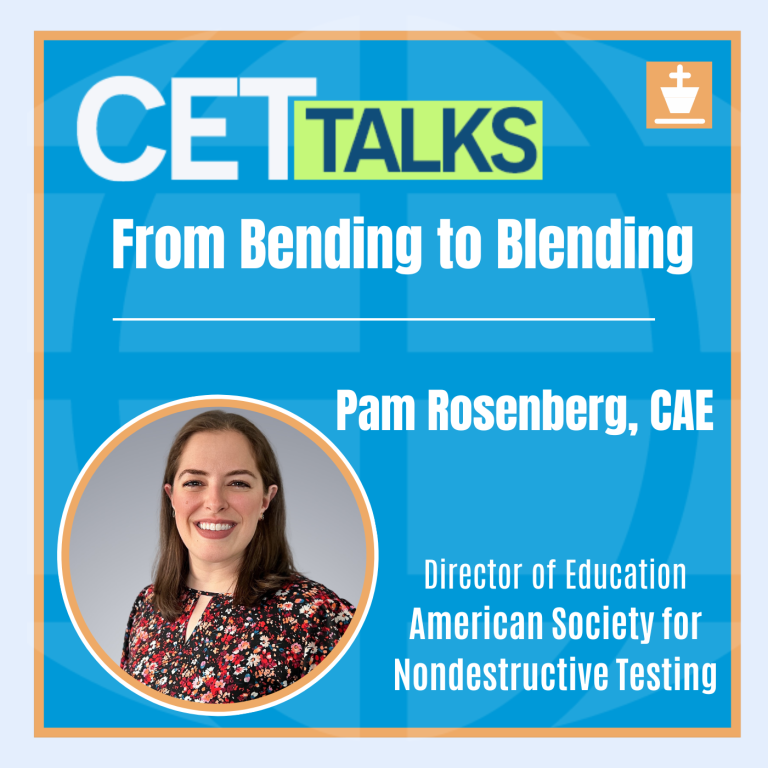
Episode 26: From Bending to Blending: Best Practices in Integrating Externally-Created Content
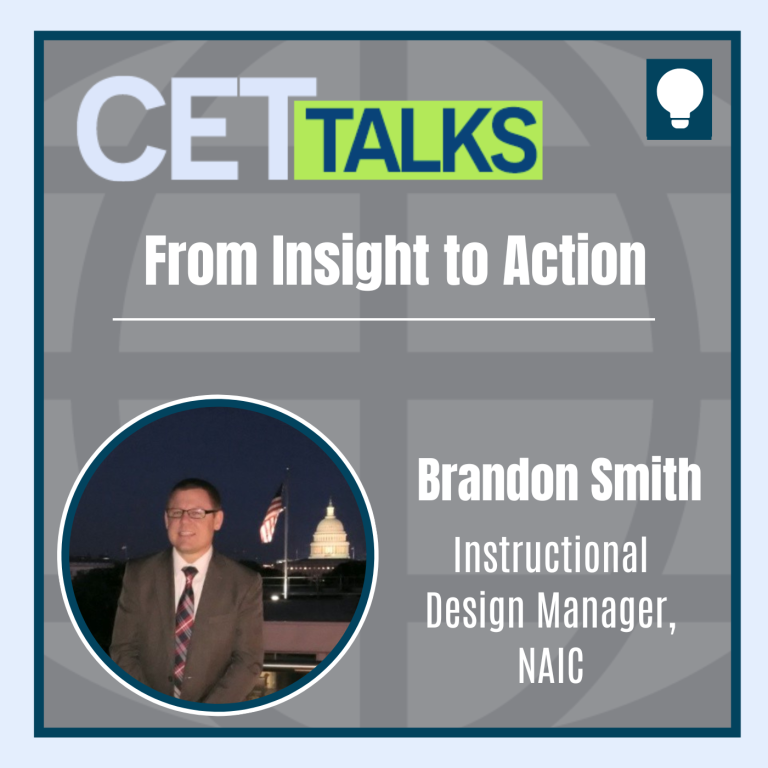
Episode 25: From Insight to Action: Charting the Career Path of a SME-turned-ISD
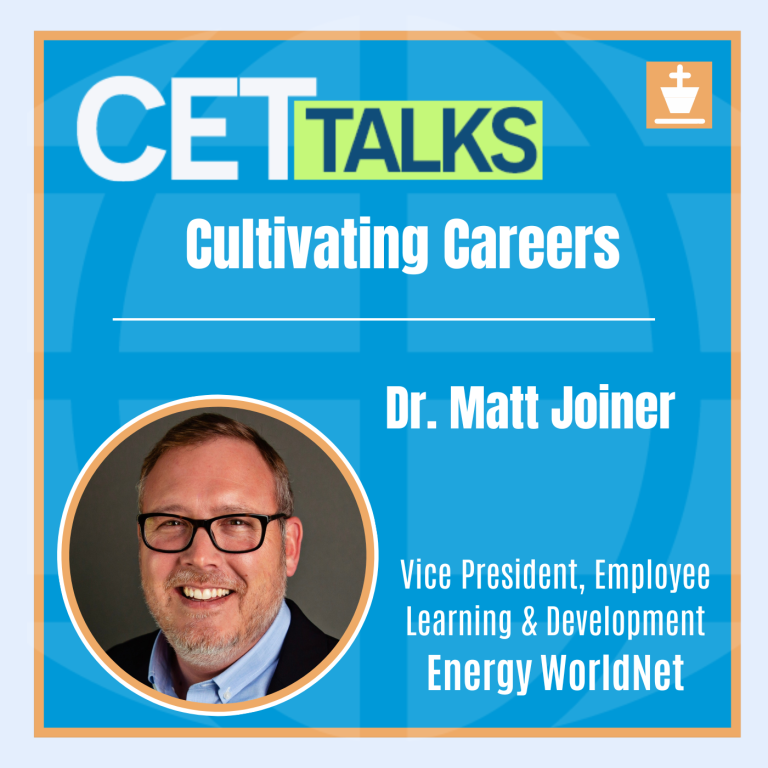
Episode 24: Cultivating Careers: The Power of Employee Engagement for Organizational Success
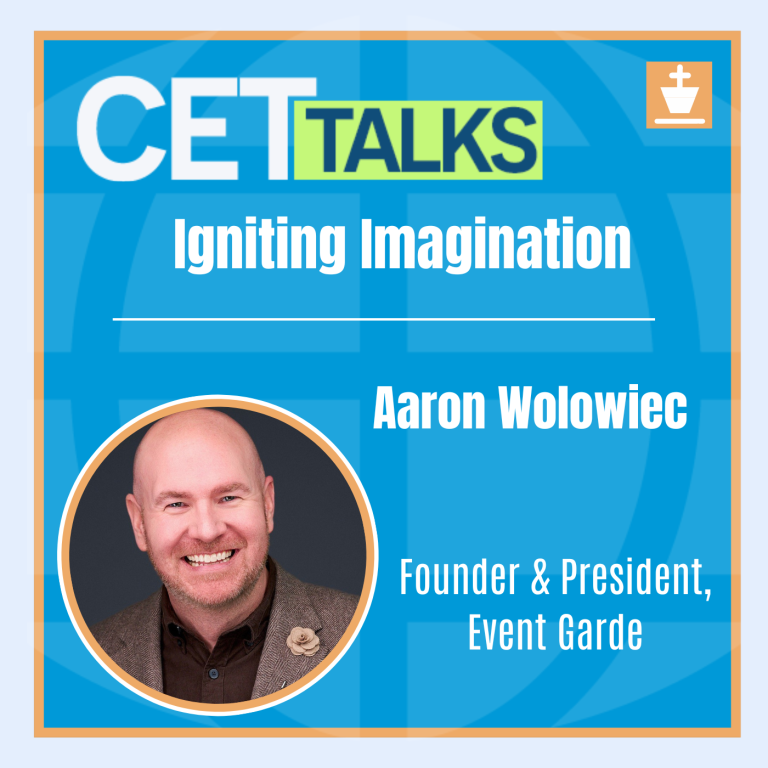
Episode 23: Igniting Imagination: Crafting Creativity in Training Environments
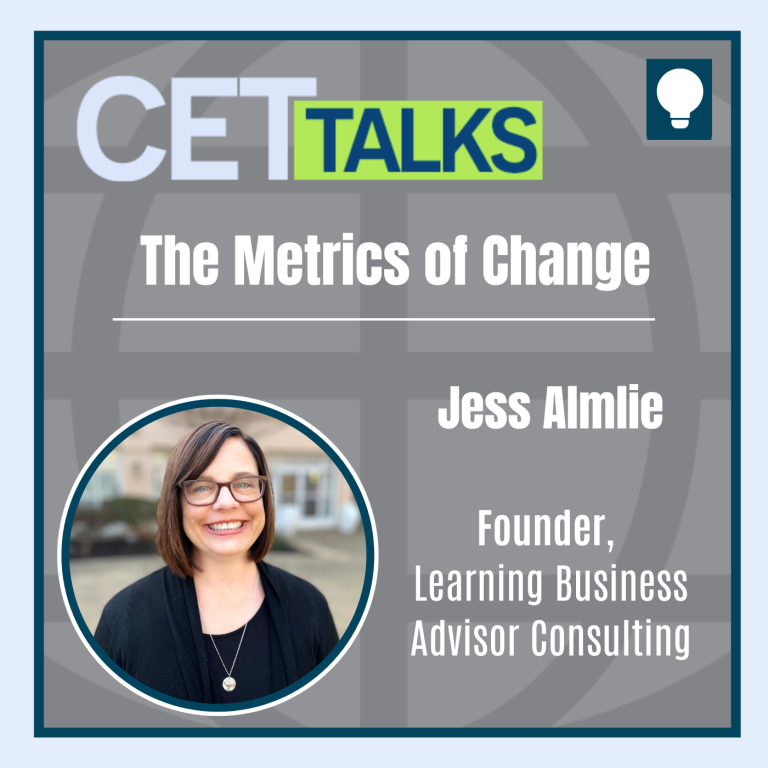
Episode 22: The Metrics of Change: Navigating Purposeful Measurement in L&D
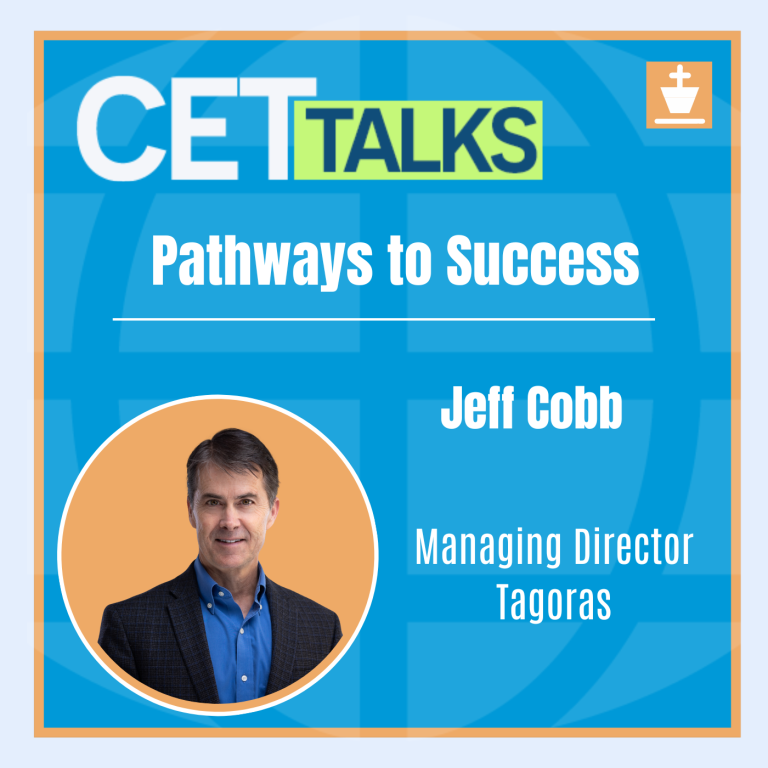
Episode 21: Pathways to Success: The Value of Lifelong Learning through Digital Credentials
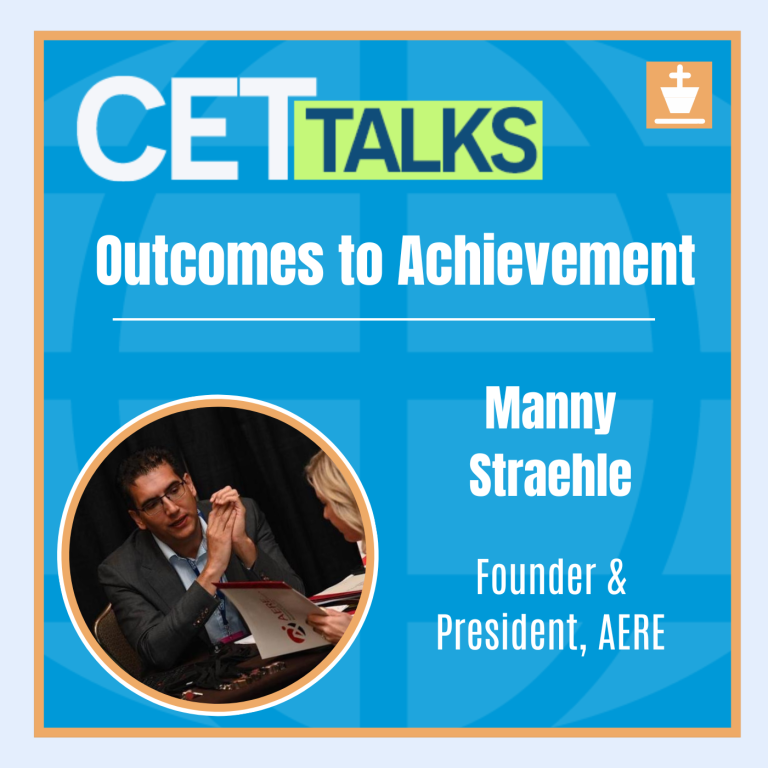
Episode 20: Outcomes to Achievement: Crafting Tomorrow’s Workforce Through Competency Models
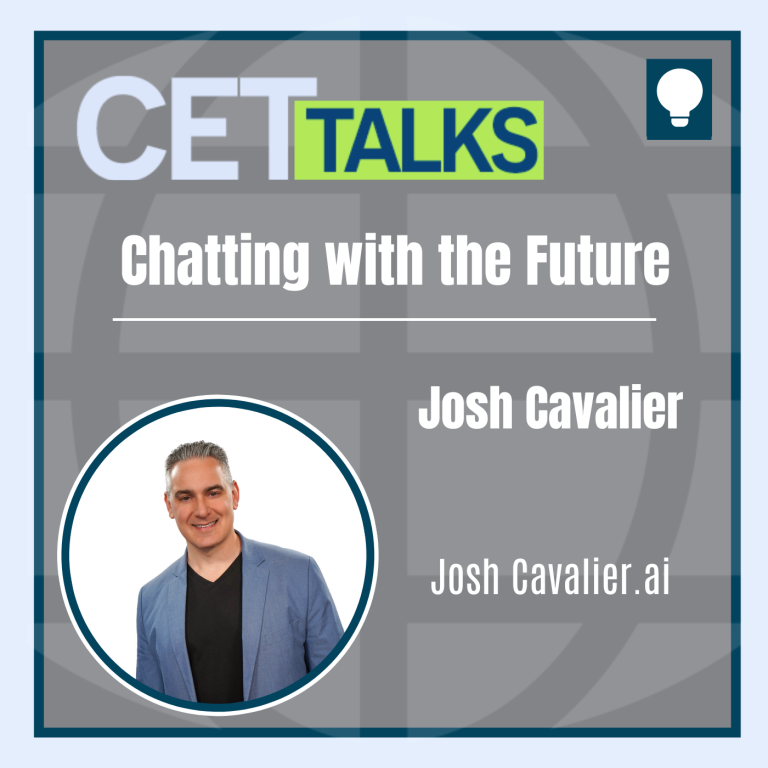
Episode 19: Chatting with the Future: Enhancing AI Output Through Prompt Engineering
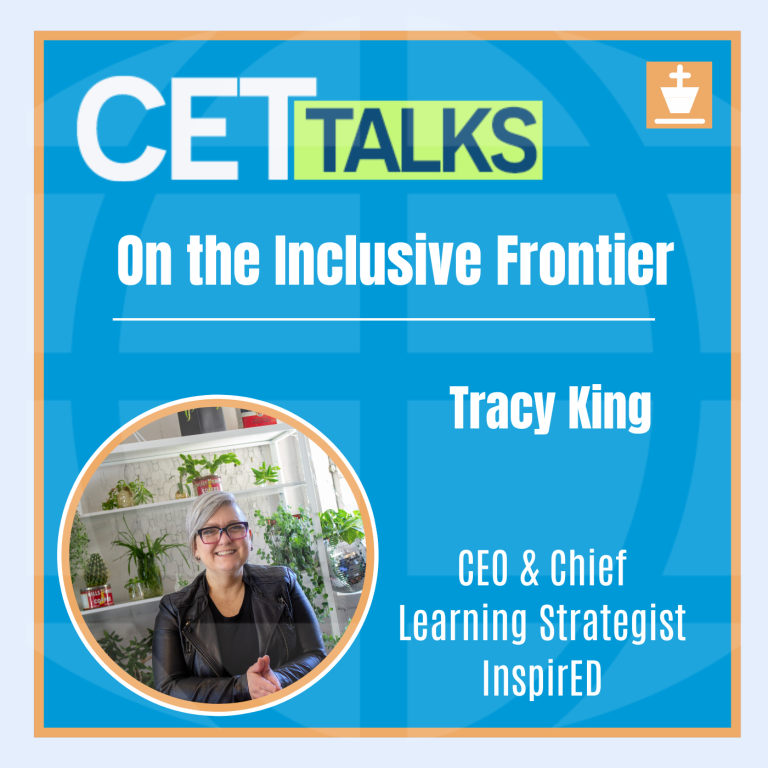
Episode 18: On the Inclusive Frontier: Harnessing Neurodivergence in Modern Training

Episode 17: Designing with Purpose: Strategies for Accessible e-Learning Development
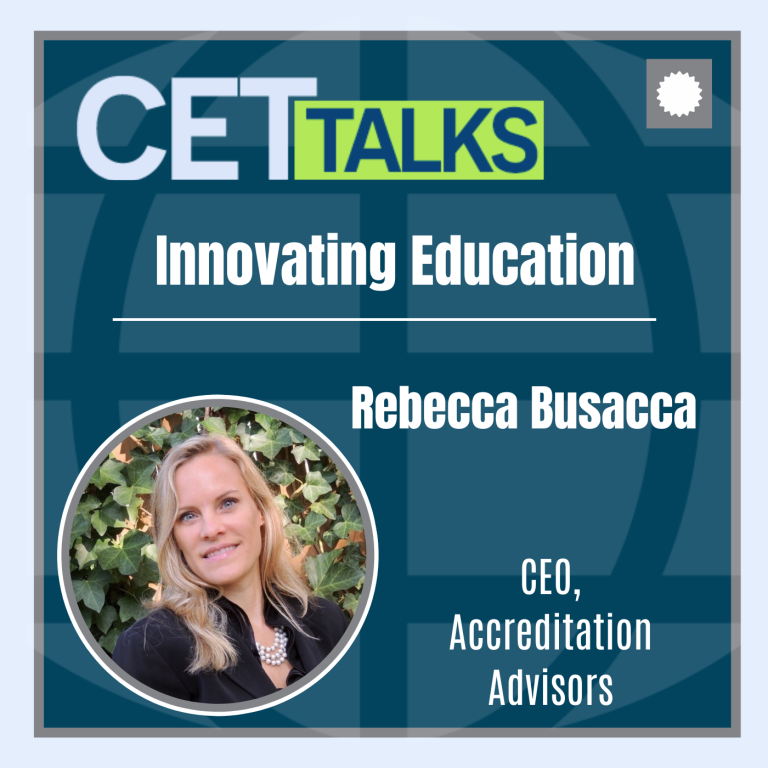
Episode 16: Innovating Education: Navigating Accreditation for Short-Term Training
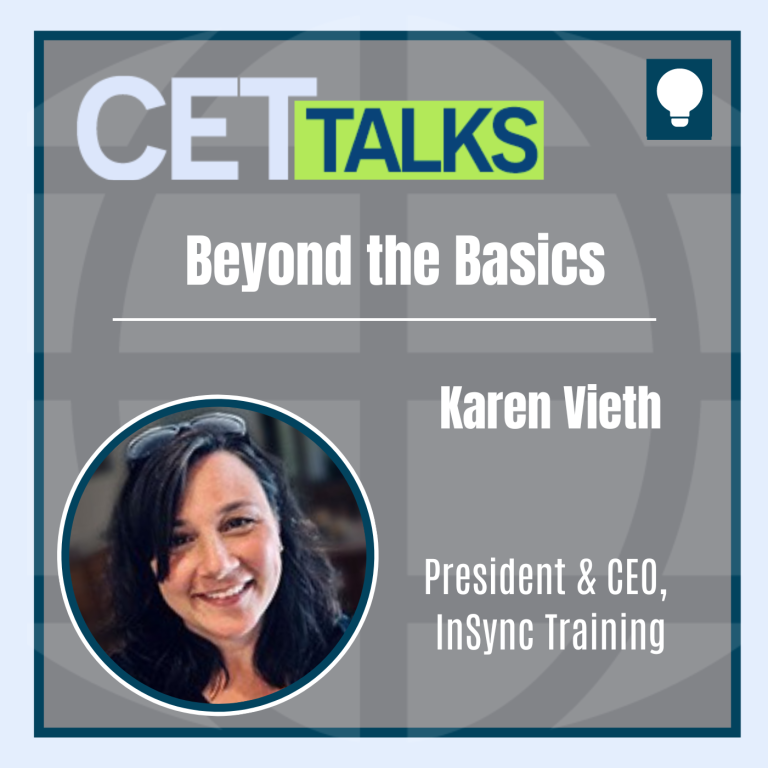
Episode 15: Beyond the Basics: Elevating Virtual Training through Expert Facilitation
